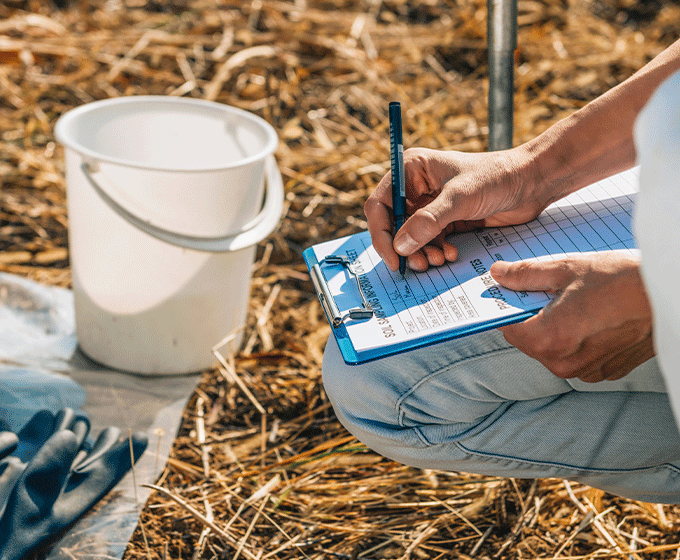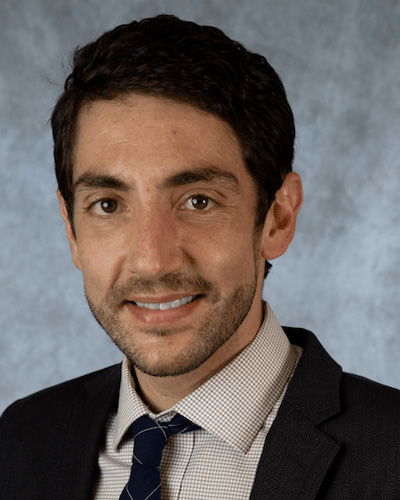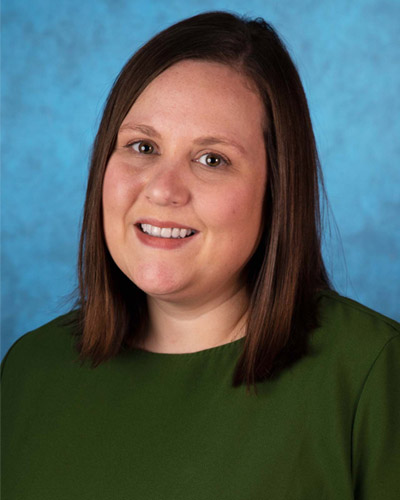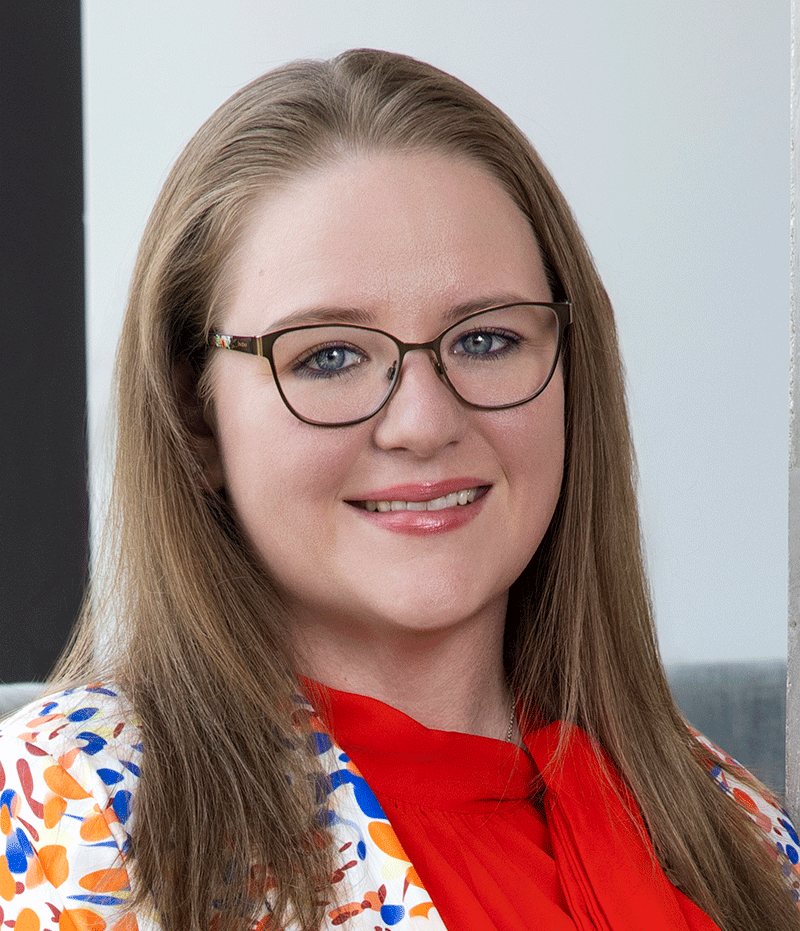
NOVEMBER 18, 2024 — UTSA students in microbiology courses will soon have the opportunity to sift through soil samples in pursuit of new antibiotics. Researchers developing this learning experience aim to boost motivation and engagement in the science, technology, engineering and mathematics (STEM) fields among underserved undergraduate students while also tackling the growing antibiotic resistance crisis.
The team will develop the interdisciplinary online learning module, called Place-Based Soil Data Interpretation and Research in Texas (PBS-DIRT), with a $395,000 grant from the U.S. Department of Agriculture, National Institute of Food and Agriculture.
The project will be led by principal investigator (PI) Ian Thacker, assistant professor of educational psychology in the College of Education and Human Development. Rebecca Schroeder, associate dean of the University College and professor of instruction and multidisciplinary studies, and Sara Shields-Menard, assistant professor of instruction, molecular microbiology and immunology in the College of Sciences are the co-PIs.
 Ian Thacker
Ian ThackerStudents participating in the module will collect soil samples from the San Antonio area and analyze soil data to potentially find new antibiotics. Students will then contribute their findings to a global database managed by the Tiny Earth Initiative, an organization that supports student research in pursuit of more effective antibiotics.
“Over 60% of clinically used antibiotics come from soil bacteria, but as soil erodes, so does the opportunity to discover new antibiotics,” explained Shields-Menard. “This research addresses the convergence of the soil crisis and the antibiotic resistance crisis. Students will have the opportunity to analyze soil in their own communities to find new antibiotic-producing bacterial isolates.”
The U.S. Centers for Disease Control and Prevention describes antimicrobial resistance as “one of the world's most urgent public health problems.” It occurs as pathogens develop defense mechanisms against common antibiotic medications. According to the World Health Organization, the process is driven by misuse and overuse of antibiotic drugs. Meanwhile, the development of new, more effective antibiotics has not kept pace with rising resistance levels, meaning that a growing number of bacterial infections are untreatable.
 Sara Shields-Menard
Sara Shields-MenardStudents in the module will have the opportunity to ask research questions about antibiotic-producing bacteria in soil and find answers by creating and interpreting visualizations from the data that they collect. For example, in the researchers’ pilot study, students posed questions such as whether moisture, acidity of soil, traffic density or elevation are linked to the likelihood that soil will produce antibiotics.
The researchers hope that by analyzing their immediate surroundings in a scientific and data-driven manner, and by connecting the process to an urgent, real-world issue, the students taking the module will better understand the practical applications of science and data science.
“By emphasizing relevant and meaningful applications of science, we can improve diverse undergraduate students’ motivation and learning in STEM fields,” said Thacker.
 Rebecca Schroeder
Rebecca SchroederThe module creators also aim to bolster students’ understanding of data science, which they say is becoming an increasingly crucial skill in many fields.
"Being data-savvy is not just an advantage but a necessity for college students,” said Thacker. “Interacting with and interpreting data enables students to make informed decisions, uncover new insights, and contribute meaningfully to their fields.”
This project is slated to run in three microbiology courses at UTSA with approximately 1,000 student participants over the course of a four-year period (2024–2028). The project leads hope that following the initial implementation, the module can be used to enhance STEM classrooms in other universities and schools.
Any opinions, findings, conclusions, or recommendations expressed in this publication are those of the authors and should not be construed to represent any official USDA or U.S. Government determination or policy.
UTSA Today is produced by University Communications and Marketing, the official news source of The University of Texas at San Antonio. Send your feedback to news@utsa.edu. Keep up-to-date on UTSA news by visiting UTSA Today. Connect with UTSA online at Facebook, Twitter, Youtube and Instagram.
Move-in Day is an exciting time for incoming students. Students living in Alvarez Hall (2nd and 4th), and Chisholm Hall are moving in on August 19. The UTSA Housing and Residence Life (HRL) team looks forward to welcoming you all and helping you settle into your room.
Alvarez Hall and Chisholm HallMove-in Day is an exciting time for incoming students. Students living in Chaparral Village move in from August 20-21. The UTSA Housing and Residence Life (HRL) team looks forward to welcoming you all and helping you settle into your room.
Chaparral VillageMove-in Day is an exciting time for incoming students. Students living in Laurel Village move in on August 22. The UTSA Housing and Residence Life (HRL) team looks forward to welcoming you all and helping you settle into your room.
Laurel VillageThe College of Sciences welcomes our newest Roadrunners to UTSA at VIVA Science! This interactive event connects students with faculty, staff, student leaders, and peers while highlighting the opportunities available across the College.
Outdoor Learning Environment 2 (OLE), Flawn Building, Main CampusWe're excited to welcome the new class of UTSA College of Liberal and Fine Arts (COLFA) students to campus! Move In To COLFA is strongly recommended for new students in COLFA because it gives you the chance to learn about the Student Success Center, learn how to do college successfully and meet new friends.
Galleria (MH 2.01), McKinney Humanities Building, Main CampusBuild connections with your Alvarez College of Business peers and learn more about the Career Compass program! This opportunity will provide fun interactions, giveaways and a chance to meet your next friend!
Richard Liu Auditorium (BB 2.01.02,) Business Building, Main CampusCelebrate the end of summer and the start off a great fall semester with The Housing Block Party! This event will have live music, carnival-style treats, artists, games, and activities galore. Come and join us for a night of fun!
Multipurpose Room/Lawn, Guadalupe Hall, Main CampusThe University of Texas at San Antonio is dedicated to the advancement of knowledge through research and discovery, teaching and learning, community engagement and public service. As an institution of access and excellence, UTSA embraces multicultural traditions and serves as a center for intellectual and creative resources as well as a catalyst for socioeconomic development and the commercialization of intellectual property - for Texas, the nation and the world.
To be a premier public research university, providing access to educational excellence and preparing citizen leaders for the global environment.
We encourage an environment of dialogue and discovery, where integrity, excellence, respect, collaboration and innovation are fostered.